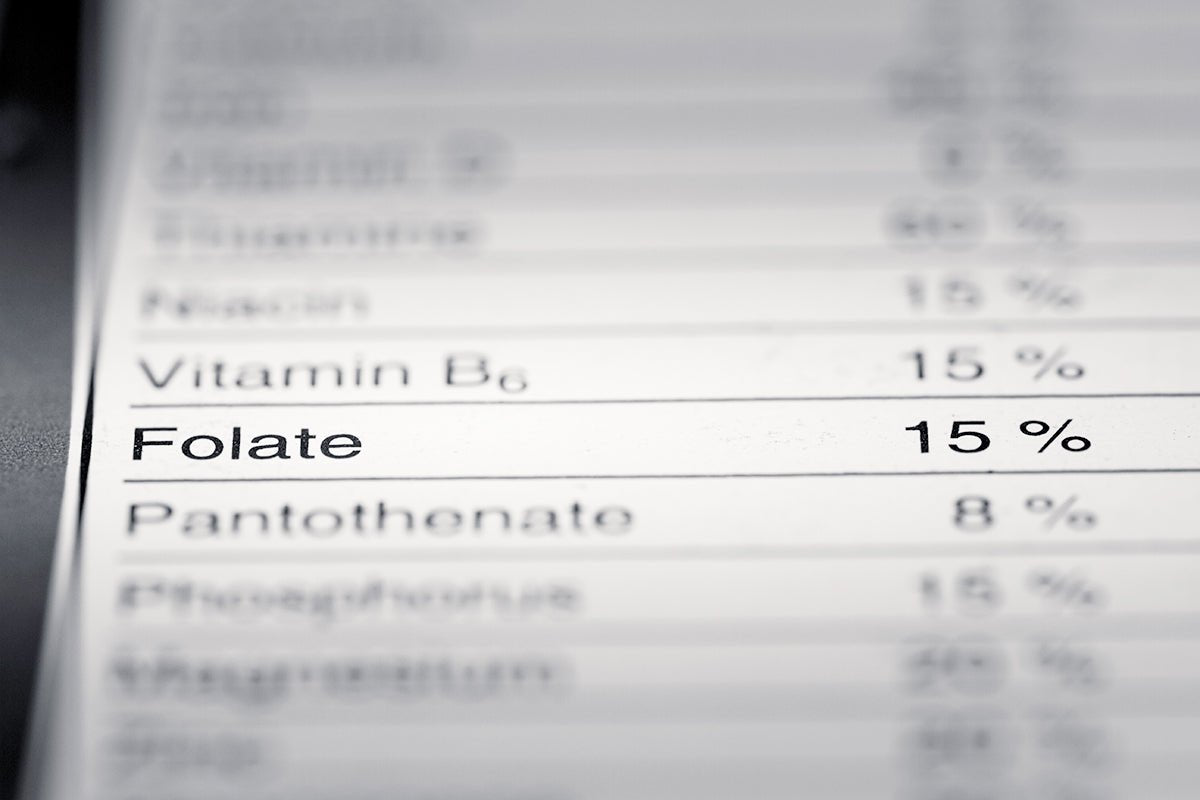20% OFF HEART HEALTH COLLECTION USE CODE EZHEART AT CHECKOUT
20% OFF HEART HEALTH COLLECTION USE CODE EZHEART AT CHECKOUT
20% OFF HEART HEALTH COLLECTION USE CODE EZHEART AT CHECKOUT
20% OFF HEART HEALTH COLLECTION USE CODE EZHEART AT CHECKOUT
20% OFF HEART HEALTH COLLECTION USE CODE EZHEART AT CHECKOUT
20% OFF HEART HEALTH COLLECTION USE CODE EZHEART AT CHECKOUT
20% OFF HEART HEALTH COLLECTION USE CODE EZHEART AT CHECKOUT
20% OFF HEART HEALTH COLLECTION USE CODE EZHEART AT CHECKOUT
20% OFF HEART HEALTH COLLECTION USE CODE EZHEART AT CHECKOUT
20% OFF HEART HEALTH COLLECTION USE CODE EZHEART AT CHECKOUT
20% OFF HEART HEALTH COLLECTION USE CODE EZHEART AT CHECKOUT
20% OFF HEART HEALTH COLLECTION USE CODE EZHEART AT CHECKOUT
20% OFF HEART HEALTH COLLECTION USE CODE EZHEART AT CHECKOUT
20% OFF HEART HEALTH COLLECTION USE CODE EZHEART AT CHECKOUT
20% OFF HEART HEALTH COLLECTION USE CODE EZHEART AT CHECKOUT
20% OFF HEART HEALTH COLLECTION USE CODE EZHEART AT CHECKOUT
20% OFF HEART HEALTH COLLECTION USE CODE EZHEART AT CHECKOUT
20% OFF HEART HEALTH COLLECTION USE CODE EZHEART AT CHECKOUT
20% OFF HEART HEALTH COLLECTION USE CODE EZHEART AT CHECKOUT
20% OFF HEART HEALTH COLLECTION USE CODE EZHEART AT CHECKOUT
20% OFF HEART HEALTH COLLECTION USE CODE EZHEART AT CHECKOUT
20% OFF HEART HEALTH COLLECTION USE CODE EZHEART AT CHECKOUT
20% OFF HEART HEALTH COLLECTION USE CODE EZHEART AT CHECKOUT
20% OFF HEART HEALTH COLLECTION USE CODE EZHEART AT CHECKOUT
EZ Melts Health Blog

EZ Melts Health Blog
Should You Be Taking Folic Acid or Folate?
by Annie-Eliza Stevens
on Mar 04 2024
Reading Time: 3 minutes
Folic acid and folate play an important role in the body, especially during pregnancy. These two forms of vitamin B9 are often used interchangeably, but they are not the same.
Understanding the differences between methylated folate and regular folic acid can help you determine which supplement is best for your individual needs and ultimately promote good health.
Folate and Folic Acid: The Crucial Distinction
At first glance, folate and folic acid might seem interchangeable, but they are different in their origin and how they are processed in the body.
Folate refers to a group of water-soluble B vitamins that occur naturally in foods, especially dark green leafy vegetables.
Folic acid, on the other hand, is a synthetic compound used primarily in dietary supplements and fortified food products. The critical difference lies in how efficiently our bodies can metabolize these substances.
How the Body Processes Folate
Folates from dietary sources are complex molecules that undergo a series of enzymatic processes in the body. This conversion typically takes place in the intestines and the liver, where folates are turned into a form called 5-MTHF, which the body can use. 5-MTHF is the active form of folate that is most easily absorbed and utilized by the body.
In contrast, folic acid does not occur naturally in foods but is a synthetic form of folate. This means that it needs to be metabolized into 5-MTHF before the body can use it.
Is a Methylated Folate Supplement Better Than Folic Acid?
Despite its widespread presence in supplements and fortified foods like cereal, folic acid's relationship with our bodies is a bit more complicated.
Some researchers believe that overreliance on folic acid can cause a buildup of unmetabolized folic acid in the bloodstream, which may have negative health implications. This is because the body can only process a certain amount of folic acid at a time, and excess amounts may not be effectively converted into 5-MTHF.
In addition, some individuals have genetic variations that make it difficult for their bodies to convert folic acid into 5-MTHF. This could potentially lead to deficiencies in folate levels, even when consuming high amounts of folic acid.
The Benefits of Choosing Methylated Folate
On the other hand, choosing supplements with 5-MTHF can provide numerous benefits for our bodies. As mentioned earlier, methylated folate, or 5-MTHF, is the active form of folate that is most easily absorbed and utilized by the body.
Additionally, for those with a common gene variant, the MTHFR gene, the conversion of folic acid into a usable form, 5-MTHF, is further hindered. This can lead to a build-up of unconverted folic acid in the body, which has been linked to potential health issues.
By choosing supplements with methylated folate, individuals with this gene variation can bypass the conversion process. This is especially important for pregnant people, as sufficient levels of folate are crucial for proper fetal development.
In conclusion, while folic acid may be widely available and added to many foods, it is important for individuals with the MTHFR gene variation to choose methylated folate supplements to promote absorption and utilization in the body.
Signs You May Need a Methylated Folate Supplement
If you have a family history of heart disease, cognitive decline, or other health issues related to folate metabolism, it may be worth considering adding a methylated folate supplement to your daily routine.
Additionally, those with the MTHFR gene mutation may benefit from supplementation as their bodies cannot fully utilize folic acid.
For pregnant individuals, the CDC recommends taking a prenatal vitamin that includes folic acid to reduce the risk of neural tube defects in their newborns.
Expecting parents need to make sure they have enough folic acid in their diet—ideally from natural sources—and supplements are a cornerstone of prenatal care.
Beyond pregnancy, individuals with specific health conditions, vegetarians or vegans, and older adults may benefit from folic acid supplements.
Conditions such as celiac disease, Crohn's disease, and certain medications may interfere with the body's ability to absorb folate, making supplementation a helpful approach.
Taking supplements with methylated folate instead of folic acid may help your body to absorb it better without the build-up.
Conclusion
In conclusion, the difference between folic acid and methylated folate isn't just semantics. Choosing the right form of vitamin B9, whether it’s folic acid or methylated folate, for your health needs could lead to better absorption and fewer health complications down the road.
When in doubt, consult with a healthcare professional who can guide you to the best choice for your unique health profile.
The decision to supplement or not is deeply personal, but with the right information, you can make choices that support your health and wellness journey.

EZ Melts Health Blog
Your Simple Guide to Vitamin Bs
by Annie-Eliza Stevens
on Apr 22 2023
Reading Time: 4 minutes
There are eight B vitamins to keep track of, and all of them are crucial to your metabolism, energy levels, brain function, and well…most functions in the human body.
All eight of these nutrients are found in food, however, millions of people in the United States—and the world—are vitamin deficient, meaning that many people aren’t living at their peak wellness.
There’s a lot of information out there on just vitamin Bs alone, so we’ve made a simplified guide with a snapshot of what systems in your body each vitamin B supports.
Vitamin B1 (Thiamin)
For:
Kidneys
Immune system
Cognitive function
Nerves
Vitamin B1, also known as thiamine, is necessary for brain function and energy production. It’s also connected to healthy kidney function and immune system function. Thiamine is an essential nutrient that must be obtained from food or supplements; like the other B vitamins, it cannot be made by the body.
Vitamin B2 (Riboflavin)
For:
Metabolism
Healthy organs
Immune system
DNA/RNA production
Vitamin B2 (riboflavin) is an essential nutrient that helps with the production of DNA and RNA. It's also needed for the maintenance of healthy skin, hair and nails. Vitamin B2 helps with the metabolism of carbohydrates, fats and proteins.
Vitamin B1 is also found in many foods made with yeast, including beer and baked goods. It's also important for the maintenance of healthy heart muscles and red blood cells.
Vitamin B3 (Niacin)
For:
Cell turnover
Energy levels
Healthy digestion
Healthy skin
Nervous system
You may know vitamin B3 as niacin. It's a water-soluble vitamin that's important for energy production and helps to maintain a healthy digestive system.
Niacin also plays an important role in keeping your skin healthy, as well as maintaining the health of your nervous system. Niacin is found in meat, fish, poultry, and certain vegetables.
Vitamin B5 (Pantothenic Acid)
For:
Hormone production
Energy levels
Metabolism
Healthy organs
Vitamin B5 is one of the lesser-known B vitamins. It plays an important role in energy production and metabolism, as well as helping your body maintain healthy skin, hair, and nails. It's also known as pantothenic acid because it can be synthesized in the body from pantothenate (vitamin B5).
Vitamin B6 (Pyridoxine)
For:
Nervous system
Metabolism
Energy production
Childhood development
Vitamin B6 supports many bodily functions, including growth and development, energy production and protein metabolism, and the nervous system. Many people who don’t eat meat have a vitamin b 6 deficiency, so it’s important to make sure you’re getting enough if you're a vegetarian or vegan.
Vitamin B7 (Biotin)
For:
Healthy hair, skin, nails,
Metabolism
Energy levels
Muscle support
Cholesterol levels
Vitamin B7 (also known as biotin) is a water-soluble vitamin that plays an important role in energy production. It's also essential for metabolism, which helps you process the food you eat and turn it into energy.
The main function of vitamin B7 is to help convert carbohydrates into glucose (blood sugar), which gives us the energy we need to stay awake and active throughout the day, but is connected to so many other processes as well, including—yes—hair, skin, and nails, which is is most known for.
Vitamin B9 (Folic Acid or Folate)
For:
Lower likelihood of birth defects
Heart health
Cognitive function
Nervous system
Vitamin B9 (folic acid) is essential for cell growth and repair. It also supports the production of red blood cells, which help deliver oxygen to your tissues. Folic acid is linked to healthy brain function, nervous system health, and heart health. Folic acid is especially important during pregnancy because it is linked to supporting lower instances of birth defects.
Vitamin B12
For:
Nerve function
Red blood cell count
Metabolism
Energy levels
Vitamin B12 is a water-soluble vitamin that helps maintain nerve cells and red blood cells. It also helps make DNA, red blood cells, and fatty acids (fats). Vitamin B12 plays an important role in the metabolism of fats, carbohydrates, and proteins.
Vitamin B12 plays an important role in maintaining healthy nervous system function as well as energy levels. It supports cardiovascular health by helping to maintain a healthy heart muscle as well. This is the B vitamin most people are lacking in their diet, especially vegans and vegetarians.
B-Complex
B-Complex is a supplement that includes all eight essential B vitamins. While it’s rare to be lacking all eight of these Bs in your diet, many people today aren’t getting enough of all eight. Covering your bases with a quality B-Complex vitamin might be your best bet if you aren’t sure.
Conclusion
All these Bs might be making your head spin at this point—but Bs are essential to your health. Simplify the hassle of keeping them all straight by taking a B-Complex supplement.
In addition to a well-rounded diet, a B-Complex supplement can help to bridge any nutrient gap you may have with your vitamin Bs.
Our vitamins are non-GMO, vegan, sugar-free, and free from the nine most common allergens. We support the planet with the ingredients we use in our supplements.
We make it EZ to get the nutrition you need with our fast-melting supplements. And with our subscription service, it’s even easier to take care of yourself. Use code EZ30 at checkout to save 30% off your first subscription.

EZ Melts Health Blog
by Annie-Eliza Stevens
on Jul 11 2022
When you think about your physical health, how often does taking care of your blood come to mind?
We never talk about it! Taking care of our bones, muscles, heart, digestion, and more, yes…but just our blood health, in and of itself?
We don’t hear it mentioned often, yet it should be because red and white blood cells keep your entire body functioning.
Think of your bloodstream like a city’s around-the-clock subway system and your veins as the rails.
Red blood cells transport nutrients, hormones, and oxygen to your entire body while getting rid of toxins like carbon dioxide through your lungs.
Meanwhile, white blood cells, or leukocytes, are the soldiers of your immune system, attacking any disease or infection that crosses their path.
Blood cannot be replaced, so let’s take care of it, shall we? Here are the best ways to keep that blood pumping at its best.
Stay Hydrated
Drinking water keeps blood cells hydrated, which in turn, keeps your blood circulating faster and helps to regulate your blood pressure and heart rate.
Set a reminder in your phone to get at least 64oz of fresh, filtered water per day—you might need even more depending on different health factors and lifestyles. Check out what the Heart Foundation recommends here.
Iron-Rich Diet
Iron is a huge component of hemoglobin, which is the essential protein in red blood cells. Iron is incredibly essential to your body’s ability to keep all systems operating at their finest, so be sure to eat foods rich in iron.
Even eating nutritious food might not be enough. About 25% of adults worldwide are iron deficient, so consider taking an iron supplement.
Folate and B-12
Folic acid and folate are technically the same vitamin: B9.
Folate is naturally found in foods, while folic acid is the synthetic version. Both are safe and approved by the FDA. Folate is found in whole foods such as leafy greens like spinach and broccoli, chickpeas and kidney beans, liver, and more.
Whether you get B9 through food or supplements, it’s digested, converted into an active form that the body can use, and enters the bloodstream.
B12, on the other hand, is essential for creating new cells, including blood cells. No B-12, and you’ll have a slew of symptoms on your hands.
To make matters worse, B-12 is on the list of most popular vitamin deficiencies. B-12 is mainly found in animal products, which makes vegans and vegetarians especially vulnerable. A great way to bridge the gap is by taking a daily supplement.
Vitamin B12 and B9 work together to help the body process iron and metabolize it, as well as create healthy blood cells. Taking a combination of the three in supplement form helps your blood help YOU, and it’s one of the easiest ways to ensure you’re getting the right amounts.
The EZ Melts Difference
It’s important to have a daily routine of feeding your body the nutrients it needs. Supplements are the easiest and quickest way of ensuring you get the correct amount.
Many vitamin supplements are solid and have a ton of chemical additives, which can cause stomach upset, so quality matters.
Make sure you are choosing a brand that cares about what they put into their supplements as much as you care about what goes into your body. Check out our Zero-Sugar, Vegan, Gluten-Free, Non-GMO, quick melting tablets in customer-approved flavors!

EZ Melts Health Blog
Shocking Truths About Vitamin Deficiencies in the US—And the 5 Most Popular Supplements
by Annie-Eliza Stevens
on Nov 10 2021
Read time: 3 minutes
There are so many factors that go into our health and nutrition, including where and how we live our lives. The amount of vitamins and minerals we take in—and which ones— are affected by our environment.
For example, our work hours and office culture, whether it rains or shines more, how frequently we get outside (or can get outside) into nature, and regional diets all affect what kind of vitamins and minerals we get.
Many people end up taking vitamin supplements to meet their nutritional needs when their food and lifestyle alone don’t cut it. In fact, the percentage of Americans who take supplements on a daily basis reached an all-time high in 2019, coming in at 77% of the total population!
Read on to learn about the most common deficiencies, and for the list of the 5 most sought-after supplements in the US today.
Most Common Deficiencies
In 2020, according to the Dietary Guidelines Advisory Committee, people in the US have deficiencies in:
Vitamin A: around 25% of adults
Vitamin D: 42% of adults in the US are deficient, likelihood can increase with age and according to race
Vitamin C: 7% of US adults
Others include:
Iron: one of the most common worldwide, affecting at least 25% of adults
Folate: around 20% of the adult population
Protein: around 46% of the older population in the US
Vitamin B12: up to 90% of vegetarians and vegans may be deficient in vitamin B12
Deficiencies can be in large part due to said environmental factors, health conditions (like anemia), medication, pregnancy, age, gender, social factors and education surrounding nutrition, taking the wrong types of supplements, or even taking supplements that are ineffective and not shelved properly.
The first thing you can do is make sure you consult your medical provider to ensure you are bridging the gaps if you have any and take the right, quality supplements that fit your lifestyle.
Most Popular Vitamins in 2020
According to a recent study, the top 5 most popular supplements taken across the board in the United States are multivitamins, vitamin D, calcium, vitamin C, and B-complex, in that order.
Multivitamin: A multivitamin is often used as a catch-all for people who are concerned about their health and want to support a healthy lifestyle. There are different kinds according to gender, age, and so on, and they come in many different types of tablets, but make sure you are taking one that isn’t full of additives or chemicals. Regardless, most multivitamins contain an array of vitamins and minerals essential to your health. If you and your doctor have a specific deficiency in mind, it might be worth considering supplements only containing certain vitamins and minerals.
Vitamin D: Aids in calcium absorption by helping with cell transportation of nutrients. In general vitamin D supports major organs, proper immune function, and the musculoskeletal system. It also helps support your mood and energy levels throughout the day.
Calcium: Calcium is widely known as being associated with bone growth and strength, as well as cardiovascular health. It also aids with blood clotting. This mineral is essential to your health and can only be found externally in our food sources.
Vitamin C: Known as ascorbic acid, vitamin C is vital in forming bone, muscle, tissue, and skin. It’s a powerful antioxidant that boosts your immune system response and fights free radicals (vitamin C is responsible for boosting your body’s natural collagen production, which = healthier, younger looking skin).
Vitamin B-complex: B-complex supplements should cover at least eight essential B vitamins, and are safe to take even if you do get some of your vitamin Bs through nutrition. B vitamins support your brain, immune system, metabolism, energy levels, and much more. Vitamin B-complex also supports heart health, which is good news especially for men, who are at higher risk of heart disease and other heart conditions.
The EZ Melts Promise
Try our EZ Melts supplements for their customer-approved, all natural flavor, and their non-GMO and vegan promise. They melt quickly on the tongue, making it EZ to get the nutrition you need!
Best part? We don’t add any harmful chemicals or excess sugar. Just check out our ingredients listed on the bottle and feel better knowing you are supporting your best health the right way. Thanks for being a part of our community!
___
Written by Annie-Eliza Stevens

EZ Melts Health Blog
A Woman’s Cheat Sheet to 5 Essential Vitamins
by Annie-Eliza Stevens
on Aug 02 2021
Read time: 4 minutes
While everyone needs balanced nutrition, women’s bodies have specific needs that need to be met when it comes to vitamins. Many women go through so many changes throughout their life. For example, when a person becomes pregnant or is breastfeeding, nutritional needs change even further.
It can be hard to keep track of all of the vitamins and minerals one gets in their diet, on top of making sure it is all balanced, quality nutrition. Supplements make it easy for women to fill the gaps...but what vitamins specifically should women be focusing on? We sifted through all the research and created this handy guide so you know exactly what to look for in minutes.
Iron
Iron is a mineral that is critical to endurance, strength, and vitality. Iron is essential for blood to carry oxygen through your body. It’s also necessary to create blood cells in general, hence why a shortage of iron = higher risk of conditions like anemia.
And pregnant women need to nearly double their intake, because it aids in neurological development and is essential for growth in children.
The recommended daily dosage for women (not including pregnant women) is around 18mg, according to the NIH.
Folate
Folate is the form of B9 which is found in foods, while folic acid is the synthetic version of B9. Both are safe, approved by the FDA, and equally useful. Folate is found in whole foods such as leafy greens like spinach and broccoli, chickpeas and kidney beans, liver, and more.
Folic acid supplements are one of the most important vitamins to add to a daily regimen when pregnant. This is because, during the gestation of a fetus, a person’s body needs to increase the production of DNA, which requires folic acid. Taking folic acid supplements when pregnant can decrease the likelihood of congenital heart defects and other birth defects, preterm birth, and ectopic pregnancy.
However it’s important for every woman. Folic acid, along with the other seven B vitamins, supports a healthy metabolism by breaking down carbohydrates into fuel for energy. Vitamin B9 also helps support an even mood and emotional health and has been found to aid other vitamins in lowering the risk of heart disease.
The daily recommended dosage for non-gestating women is 400mcg, according to the NIH.
Calcium
Women are more prone to developing osteoporosis and other bone diseases than men are. Work to combat this now with calcium! Medical professionals recommend slightly different amounts according to age groups, but the fact remains the same: this mineral is essential to your health and can only be found externally in our food sources.
Calcium is widely known as being associated with bone growth and strength, as well as cardiovascular health. It also aids with blood clotting. For women, the NIH recommends anywhere from 1000-1300mg daily, but it varies depending on age.
Biotin
Biotin does a lot more than take care of hair, skin, and nail health—but that’s certainly a bonus. Biotin, or vitamin B7, is incredibly important. It supports our thyroid gland and hormone production, helps with fetal development during pregnancy, and also helps your metabolism.
According to the NIH, the recommended daily dose for adult women is 30-35 mcg, but recommendations do vary.
Vitamin D
Vitamin D not only aids in calcium absorption by helping with cell transportation of nutrients. In general vitamin D supports major organs, proper immune function, and the musculoskeletal system. It also helps support your mood and energy levels throughout the day.
A lot of people get vitamin D3 through sunlight, but not enough. There are many with vitamin D deficiency, so try pairing your outdoor time with a supplement. The recommended daily dose by the NIH in adult women is around 600 IU, or 15 mcg, but it may vary according to your needs.
The EZ Melts Difference
Many people don’t get adequate nutrition from their diet, which is where supplements come in! EZ Melts supplements are fast melting, EZ to take, and have a delicious customer approved flavor.
Unlike many major vitamin brands, our tablets do not include harmful toxic ingredients, artificial flavors, or GMOs. Try us out and see the difference!
___
Written by Annie-Eliza Stevens

EZ Melts Health Blog
What is Folate and Why is it Important
by Annie-Eliza Stevens
on Jun 27 2021
Read time: 3 minutes
Grow your own DNA! Folate, or folic acid, is also known as vitamin B9. It is a nutrient found in food and supplements that is key for physical and mental development. All vitamins and minerals are vital for optimal health; however, folic acid is especially important for fetal development, which is why people who are pregnant should take care to ensure proper consumption of B9. In addition, folate and folic acid have many other benefits.
Folate vs Folic Acid
Folate is the form of B9 which is found in foods, while folic acid is the synthetic version of B9. Both are safe, approved by the FDA, and equally useful. Folate is found in whole foods such as leafy greens like spinach and broccoli, chickpeas and kidney beans, liver, and more.
Sometimes, however, it can be hard to get the recommended daily amount, and people, especially people who are pregnant, need adequate amounts in order to thrive. This is where folic acid comes in! As with many vitamins and minerals, doctors will recommend folic acid supplements to make sure all the bases are covered.
When consumed, folic acid is digested, converted into an active form that the body can use, and enters the bloodstream. However, sometimes the body can’t convert all of it if there are excess amounts in the system, so be sure to follow the recommendations for daily intake.
Benefits of B9
Folic acid supplements are one of the most important vitamins to add to a daily regimen when pregnant. This is because, during the gestation of a fetus, a person’s body needs to increase the production of DNA, which requires folic acid. Vitamin B9 plays a critical role in forming a fetus’s neural tube. Taking folic acid supplements when pregnant can decrease the likelihood of congenital heart defects and other birth defects, preterm birth, and ectopic pregnancy.
But we always need B9, so it’s important for everyone. Folic acid, along with the other seven B vitamins, supports a healthy metabolism by breaking down carbohydrates into fuel for energy. Vitamin B9 also helps support an even mood and emotional health and has been found to aid other vitamins in lowering the risk of heart disease.
Folate Deficiency
So how do you know if you’re low on folate? There are some physical signs to note, such as poor childhood growth, an inflamed tongue, bad breath, a weak appetite, diarrhea, sluggishness, and shortness of breath. If you believe you are deficient, consult a doctor about taking a supplement to support your health.
People who are especially at risk of a folic acid deficiency are people who overuse alcohol, people with digestive issues such as IBS or celiac disease, and people with certain genetic conditions. If you fall into one of these, or just want to focus on getting the nutrients you need, look at what you eat daily. Folate foods, like dark green leafy vegetables, beans, peanuts, and sunflower seeds may help you get the daily serving of folate you need. Also, a folate supplement can help. Consider adding the EZ Melts’ folate supplement to your daily routine.
Our vitamins are fast melting and have a delicious customer-approved flavor. Unlike many major vitamin brands, our tablets are vegan and do not include harmful ingredients, artificial flavors, or GMOs. Try us out and see the difference!
___
Written by Annie-Eliza Stevens

EZ Melts Health Blog
Reducing the Risk of Brain and Spine Defects
by Annie-Eliza Stevens
on Oct 23 2020
Birth defects are more common than you think.
There are an estimated 7.9 million infants born with birth defects around the world every year. Right now, that is 6% of all births annually [1].
In the United States alone, 120,000 infants are born with birth defects, due to a combination of genetic and environmental factors [2]. That’s 1 in 33 babies. Unfortunately in many cases the cause is unknown.
However, there is a way to reduce the likelihood of brain and spinal defects. Studies show that taking folic acid, the supplement version of B-9 (folate) can help reduce the risk [3]! This is because folate helps develop the neural tube in a fetus, which is linked to both spine and brain health.
What is Folate?
Also known as folic acid, this vitamin helps make genetic material and it plays a main role in dividing and generating cells.
The average person needs less than pregnant women, but the correct intake is important for all. Here is a chart of what bodies need according to age group. As you can see, it’s recommended a pregnant or nursing woman takes anywhere from 400 to 600mcg DFE, but always consult with your medical professional before starting a new vitamin regimen.
Folate vs Folic Acid
Is there a difference between folate and folic acid? Yes and no!
They are both vitamin B-9, however folate naturally occurs in food, and folic acid is manufactured in labs as supplements and in fortified foods [4].
Folic acid tablets are usually the form of B-9 recommended before and during pregnancy. In addition to helping lower the likelihood of birth defects, it also may help in lowering the chances of preeclampsia and anemia [5].
You and your baby deserve the best wellness and risk-reducing methods available, and taking folic acid tablets is a crucial first step to peace of mind and self-care.
Folic Acid Supplements
Everyone needs B-9, as they do all other vitamins and minerals! Usually people get their daily folate through food, although checking in with a doctor if you have any symptoms of deficiency is highly recommended.
Deficiencies can be caused by many things, like poor diet, alcoholism, conditions like celiac disease, dialysis, and types of anemia!
If you find yourself trying folic acid tablets, make sure you are choosing a brand that cares about what they put into their vitamin supplements as much as you care about what goes into your body!
The best part about choosing EZ Melts? Our tablets are fast melting, EZ to take, and have delicious customer-approved flavors. In addition, all our supplements have zero chemical additives, are vegan, and non-GMO.
Thanks for being a part of our community!
Sources
https://www.nature.com/scitable/topicpage/birth-defects-causes-and-statistics-863/#:~:text=Every%20year%2C%20an%20estimated%207.9,children%20are%20disabled%20for%20life.
https://www.cdc.gov/ncbddd/birthdefects/facts.html
https://www.cdc.gov/ncbddd/folicacid/about.html
https://www.webmd.com/diet/qa/what-is-the-difference-between-folate-and-folic-acid#:~:text=Folate%20is%20the%20generic%20name,acid%20have%20the%20same%20effects.
___
Written by Annie-Eliza Stevens


















